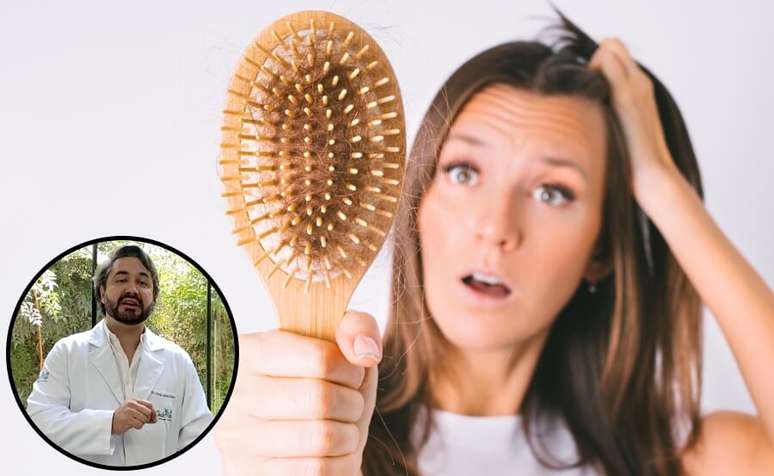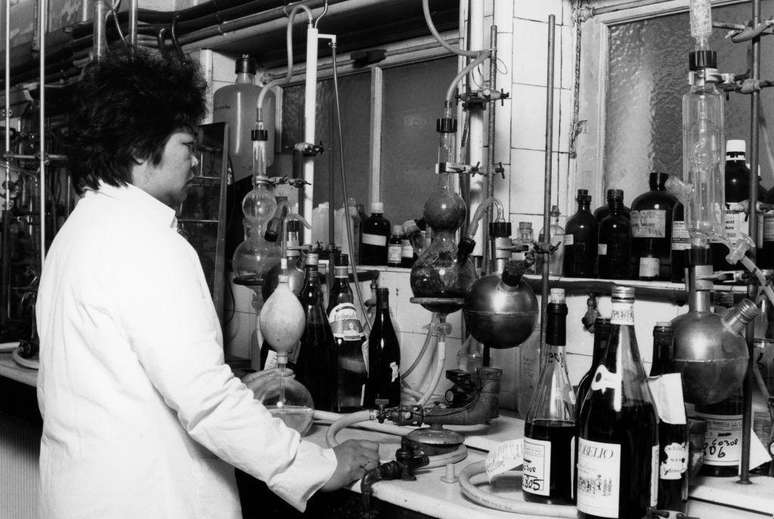Some procedures can accelerate natural hair growth
-
BY PARTICIPATING

Intense hair loss after childbirth: understanding what happens
-
BY PARTICIPATING

Herniated disc limits Crossfit training
-
BY PARTICIPATING

5 things that change in your life after having a dental implant
After experiencing beautiful, strong hair during pregnancy, postpartum women wonder: what happened to the strands that were here? This problem has a name and a surname: post-pregnancy telogen effluvium.
“This is an intense, acute loss of strands of hair in the telogen phase – strands in their last phase of the hair cycle. The incidence is high and occurs in 40-50% of pregnancies”, explains Danilo S. Talarico, medical specialist in Clinical-Surgical Dermatology, Hair Transplant and Medical Trichology and teacher in the courses of Dermatology, Trichology, Hair Transplant ( Hair Surgery). and Aesthetic Medicine.
But be careful, it is a self-limiting and self-resolving event, according to Danilo, and should not be confused with alopecia: “In telogen effluvium there is a resumption of the normal cycle of the hair follicle with the emission of new hair shafts which will replace the stems fallen. In alopecia, especially in cicatricial alopecia, no hair replacement occurs, as the follicles themselves undergo atrophy (death),” explains the doctor.
Danilo S. Talarico underlines that the greatest concern regarding postpartum effluvium occurs in the case of women who already have some form of scalp pathology, since after this phase there will be an exuberance in the aesthetic appearance.
“So preventive care of mothers’ scalp diseases is essential to have a much lighter and calmer transition with postpartum hair loss,” she explains.
What happens
To better understand this decline you need to pay attention to what happens during pregnancy. According to Deborah Beranger, endocrinologist with specialization in Endocrinology and Metabology at the Santa Casa de Misericórdia do Rio de Janeiro (SCMRJ), female hormones are linked to the growth and good consistency of hair and it is for this reason that during pregnancy, when they are in abundance, the strands become more beautiful, shiny, dense, strong and with above average growth.
“During pregnancy, due to the stimulation of female hormones in the hair, the locks are in the anagen, growth phase. So, in general, pregnant women, except those with iron deficiency, iron deficiency anemia, folic acid or vitamin D deficiency, have excellent hair quality. However, in the postpartum period there is great concern about hair loss. This phenomenon is called post-pregnancy telogen effluvium, with intense hair loss,” explains Lilian Brasileiro, a doctor specialized in Dermatology.
According to Lilian, while during pregnancy the increase in female hormones causes vasodilation in the hair bulb, bringing more oxygen and nutrients, keeping the hair growing for a long period, after giving birth there is a marked decrease in female hormones , which favors falling.
“This condition can start mainly in the first four to six months. There is a decline in female hormones in postpartum and post-caesarean section due to the stress of the post-operative period and often in cases where the patient does not rest enough, she does not eat as she should, in addition to the problem of breastfeeding breast. Physical and emotional stress with hormonal changes can lead to hair loss,” explains the doctor.
“We can always mitigate this problem with careful nutritional and medical monitoring during pregnancy, having a well-thought-out action plan for the first few months after giving birth to care for the baby with minimal compromise to the mother’s health care, preserving the hours of work and sleep, food and rest with the essential participation of the father in his role of fatherhood”, claims Danilo.
“One recommendation could be the introduction of vitamins to improve hair performance and nutrition in the last trimester,” says Lilian.

According to the doctor, this is an important characteristic to think about, observe and prevent. “Although telogen effluvium can be resolved on its own, we can immediately start taking high doses of vitamins, control iron levels and problems related to female hormones and thyroid, vitamin D, zinc and folic acid; and use specific substances if they are lacking or replace a specific nutritional intake for the hair part”, underlines Lilian.
Regarding nutritional supplements for hair, in the third trimester, the doctor explains that, in addition to folic acid, substances such as biotin, silicon, iron and zinc can be used. Furthermore, it is possible to put into practice some topical treatments, such as the use of lotions.
Important laboratory tests
To cure it, Danilo states that, in addition to the investigation with laboratory tests (blood) to carry out an assertive and precise metabolic integration, it is necessary to use different treatment protocols to accelerate this arrest of hair loss and the growth of new hair with regenerative therapies. , for example PRP.
“And, in the clinic, after birth, treatments such as the non-ablative fractional laser and the drug microinfusion technique can be used, also associated with HydraFacial Keravive,” explains the doctor.
“The procedure provides deep cleansing and exfoliation that the patient cannot achieve with regular washing at home, while infusing substances that nourish the hair. Keravive can also contribute to the treatment of hair loss, being able to stimulate the growth of follicles if they are at rest. In general, improving the health of the scalp, with greater nutritional support and an increase in the microcirculation process, can contribute to the treatment of different types of hair loss,” concludes Lilian Brasileiro.
inspires transformation in the world of work, in business, in society. Compasso, a content and connection agency, is born.
Source: Terra
Ben Stock is a lifestyle journalist and author at Gossipify. He writes about topics such as health, wellness, travel, food and home decor. He provides practical advice and inspiration to improve well-being, keeps readers up to date with latest lifestyle news and trends, known for his engaging writing style, in-depth analysis and unique perspectives.








